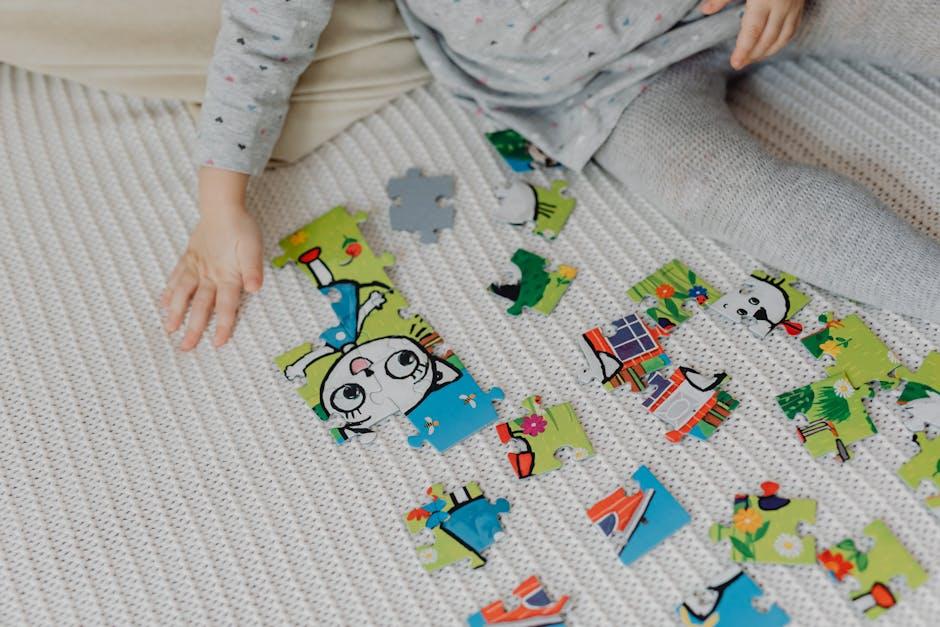In today’s rapidly evolving world, the traditional emphasis on academic excellence as the sole indicator of a child’s future success is increasingly being challenged. While a strong academic foundation undeniably plays a crucial role in a child’s development, there is a growing recognition of the importance of soft skills—such as communication, empathy, adaptability, and teamwork—in navigating the complexities of modern life. As the job market becomes more dynamic and interconnected, the ability to collaborate effectively, think creatively, and manage interpersonal relationships is emerging as a critical determinant of success. This article delves into the rationale behind prioritizing the cultivation of soft skills over the relentless pursuit of academic perfection, examining how such a shift can better prepare children for the multifaceted challenges of the 21st century. By exploring empirical evidence and expert insights, we aim to present a compelling case for why soft skills should take precedence in educational strategies, ultimately fostering well-rounded individuals capable of thriving in diverse environments.
Importance of Soft Skills in Holistic Child Development
In an era where technology and innovation redefine the workplace, the emphasis on soft skills is more critical than ever for children’s growth and success. These skills, such as communication, empathy, and problem-solving, play a pivotal role in shaping a child’s ability to interact effectively and harmoniously with others. Unlike academic achievements, which are often confined to specific knowledge areas, soft skills are universally applicable, helping children adapt to diverse environments and challenges. Through active listening, children learn to understand and respect different perspectives, fostering an inclusive mindset. Furthermore, teamwork and collaboration encourage children to work towards common goals, honing their ability to negotiate, compromise, and build consensus.
Focusing on soft skills also nurtures a child’s emotional intelligence, enabling them to manage their emotions and respond to the emotions of others with sensitivity and care. This emotional acumen is essential for cultivating resilience, an attribute that empowers children to navigate setbacks with a positive attitude. Moreover, the development of critical thinking skills equips children to approach problems methodically and innovatively. Consider the following key soft skills that are invaluable for holistic development:
- Adaptability: Adjusting to new situations and challenges with ease.
- Leadership: Inspiring and guiding peers with integrity and vision.
- Creativity: Thinking outside the box to generate novel solutions.
- Conflict Resolution: Addressing disagreements constructively and diplomatically.
Investing in the cultivation of these skills not only prepares children for future professional landscapes but also enhances their overall well-being, leading to more fulfilling and balanced lives.

Balancing Academic Pursuits with Emotional Intelligence
In the evolving landscape of education, a growing emphasis is being placed on cultivating soft skills alongside traditional academic learning. These interpersonal and intrapersonal abilities, such as empathy, self-awareness, and effective communication, are crucial for navigating the complexities of modern life. While academic excellence can open doors, it is emotional intelligence that often determines how effectively one can seize these opportunities. Studies have shown that individuals with high emotional intelligence tend to have better mental health, job performance, and leadership skills. This shift in focus from purely academic achievements to a more holistic development strategy reflects a broader understanding of what it means to be successful.
- Empathy: Understanding and sharing the feelings of others to build stronger relationships.
- Self-Regulation: Managing one’s emotions and impulses to adapt to changing circumstances.
- Motivation: Harnessing inner drive to pursue goals with resilience and perseverance.
- Social Skills: Navigating social networks and building rapport with diverse groups.
- Self-Awareness: Recognizing one’s own emotions and how they affect thoughts and behavior.
Integrating these skills into educational frameworks not only prepares children for the challenges of the future but also enhances their academic learning by promoting a more engaging and supportive environment. By prioritizing emotional intelligence, educators and parents can help children develop a toolkit that supports lifelong learning and adaptability.

Practical Strategies for Nurturing Soft Skills in Children
Fostering soft skills in children is a multifaceted endeavor that involves both intentional actions and everyday interactions. Parents and educators can create an environment conducive to the development of these skills through a variety of practical strategies. Active listening is crucial; by genuinely paying attention to children’s thoughts and feelings, adults model effective communication and empathy. Encouraging children to express themselves through storytelling or role-playing can also enhance their emotional intelligence and creativity.
- Collaborative Play: Activities like group projects or team sports teach cooperation and adaptability.
- Problem-Solving Challenges: Presenting real-world scenarios where children must devise solutions helps build critical thinking and resilience.
- Mindfulness Practices: Techniques such as meditation or journaling can improve self-awareness and stress management.
Integrating these strategies into daily routines not only nurtures soft skills but also empowers children to navigate the complexities of interpersonal relationships and professional environments with confidence.

Long-term Benefits of Prioritizing Soft Skills Over Grades
In today’s rapidly evolving world, the ability to navigate complex interpersonal dynamics and adapt to ever-changing environments is more valuable than memorizing facts for a test. Soft skills, such as communication, empathy, and problem-solving, are the cornerstone of personal and professional success. These skills equip children to handle real-world challenges, fostering resilience and adaptability. By focusing on these areas, children develop a robust toolkit that serves them well into adulthood, allowing them to thrive in diverse environments and cultivate meaningful relationships.
- Enhanced Emotional Intelligence: Understanding and managing one’s emotions, as well as empathizing with others, leads to better teamwork and leadership capabilities.
- Improved Problem-Solving: Children who excel in soft skills are better equipped to think critically and creatively, finding innovative solutions to challenges.
- Stronger Interpersonal Connections: Effective communication and collaboration skills are key to building and maintaining strong professional and personal networks.
- Adaptability and Resilience: With a strong foundation in soft skills, children are more adaptable to change and can bounce back from setbacks more effectively.
Ultimately, while academic excellence provides a foundation of knowledge, the long-term benefits of nurturing soft skills are profound. These skills not only enhance personal growth but also prepare children for a future where human interaction and emotional intelligence are paramount.



